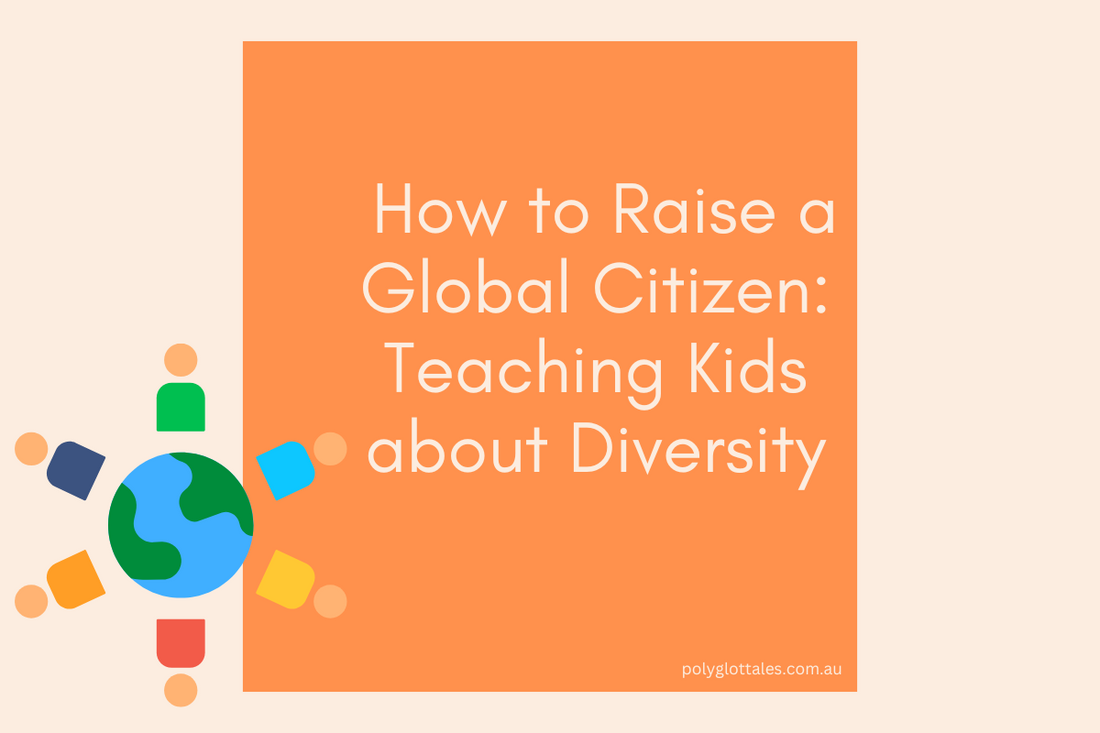In today’s interconnected world, raising children who appreciate diversity and embrace different cultures is more important than ever. Teaching kids to be global citizens helps them develop empathy, respect, and an understanding of the rich tapestry of cultures that shape our world. With Harmony Day in Australia celebrating inclusiveness, respect, and belonging, it’s the perfect opportunity to introduce diversity into your child’s everyday life and nurture their appreciation for different perspectives.
1. Expose Them to Different Cultures Early
Children are naturally curious, making their early years a great time to introduce them to various cultures. Read books featuring diverse characters, watch movies from different countries, and explore multicultural music. Visiting cultural festivals and museums can also provide hands-on experiences that make learning about diversity fun and engaging. Harmony Day events across Australia offer a fantastic way to experience different cultures in a community setting.
2. Encourage Multilingualism
Learning a new language not only boosts cognitive skills but also fosters cultural appreciation. Even if your child doesn’t become fluent, exposure to different languages helps them understand the world beyond their immediate environment. Consider bilingual storybooks, language apps, or even basic greetings in multiple languages to get them started.
3. Teach Through Food
One of the easiest and most enjoyable ways to explore different cultures is through food. Cooking meals from various countries introduces children to new traditions and tastes. Make it interactive by letting them help in the kitchen and sharing stories about the origins of the dishes you’re preparing. Harmony Day celebrations often include cultural food fairs, providing an opportunity to try new cuisines.
4. Foster Friendships with Diverse Groups
Encouraging your child to make friends from different backgrounds helps break down stereotypes and fosters inclusivity. Schools, community groups, and extracurricular activities provide opportunities for children to interact with peers from diverse cultures. Many schools in Australia incorporate Harmony Day activities that promote cross-cultural friendships and understanding.
5. Lead by Example
Children learn from their parents’ attitudes and behaviors. Show respect for different cultures, challenge stereotypes, and be open-minded in conversations about race, religion, and traditions. Encouraging questions and providing thoughtful answers helps children develop a more inclusive mindset.
6. Discuss Global Issues
As your child grows, introduce discussions about global challenges such as climate change, inequality, and human rights. Explain how different cultures contribute to solutions and emphasize the importance of working together as a global community.
7. Celebrate Differences and Similarities
While it’s essential to highlight cultural differences, it’s equally important to show how people around the world share common values like kindness, love, and respect. Celebrating both differences and similarities helps children see diversity as a strength rather than a division. Harmony Day’s theme of "Everyone Belongs" reinforces this idea beautifully.
8. Support Inclusive Education
Choose books, toys, and media that represent diverse characters and perspectives. Schools with inclusive curricula that celebrate different cultures and histories help shape children into more understanding and accepting individuals. Many Australian schools use Harmony Day as a platform to discuss inclusivity and diversity in engaging ways.
9. Travel or Explore Locally
If international travel isn’t an option, explore the cultural diversity in your own community. Visit ethnic neighborhoods, attend cultural events, and try new cuisines at local restaurants. These experiences can provide a window into different ways of life without leaving home. Harmony Day offers a great chance to attend multicultural community events.
10. Encourage Acts of Kindness and Global Citizenship
Teaching kids to give back—whether by supporting charities, participating in community service, or engaging in environmental efforts—helps them understand their role in making the world a better place. Show them how small actions can have a global impact. Volunteering at Harmony Day events or engaging in activities that promote social cohesion can be a meaningful way to instill these values.
Raising a global citizen doesn’t happen overnight, but small, intentional steps can create a lasting impact. By fostering cultural awareness, empathy, and respect, you help your child grow into an open-minded individual who values diversity and contributes positively to the world.
Harmony Day in Australia serves as a timely reminder that inclusiveness and respect are essential for building strong, vibrant communities. Let’s raise the next generation to celebrate and embrace the beauty of our diverse world!

